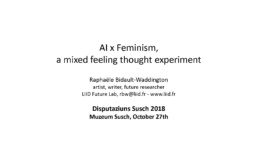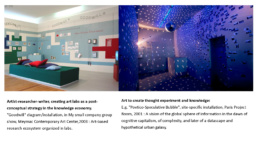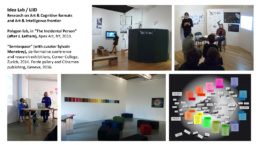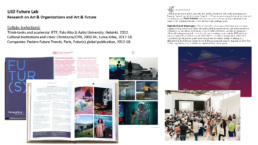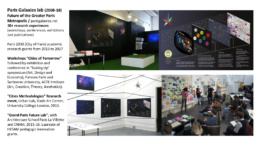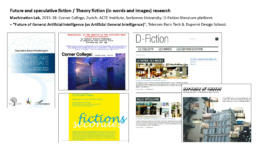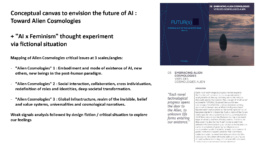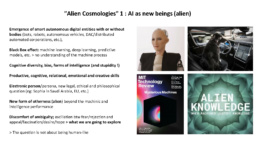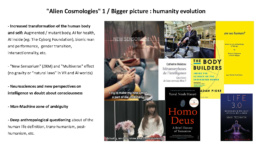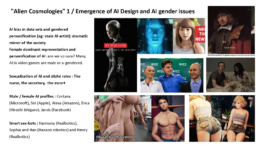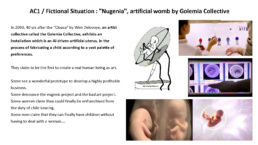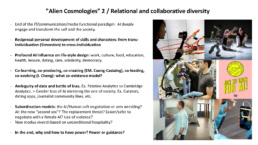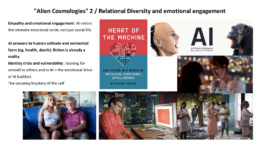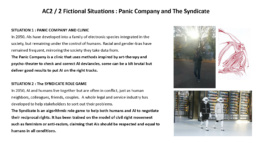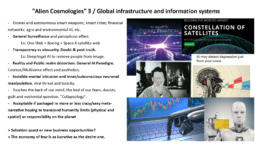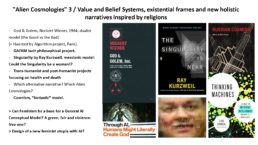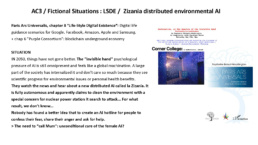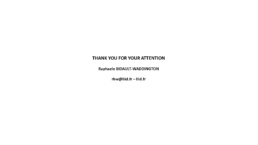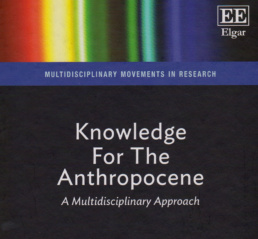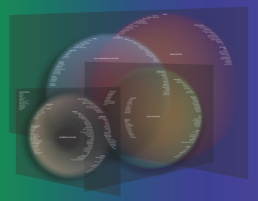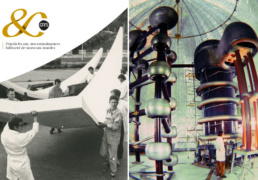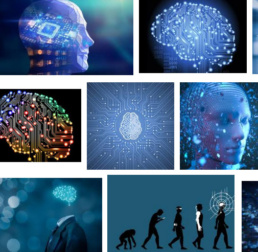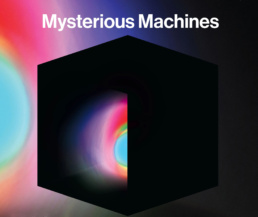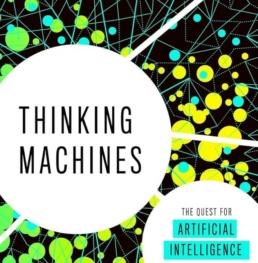AI x Feminism
a mixed feeling thought experiment
Disputaziune #2 “Do They Dream of Electronic Sheeps” (Curator: Mareike Dittmer), Muzeum Susch, Suisse, 2018.
This keynote was an opportunity to reformulate in a very synthetic way the multi-scalar issues raised by AI from their ontological ambiguity to global challenges, before addressing more specifically the question of gender, through a selection of artistic ‘future signals’, and though fictional experiments carried out that same year.–Algorithms’ and machine learning’s gender bias accentuating inequalities and clichés, archetypal feminization of AI interfaces to make them more acceptable, sexbots augmented by AI, human reproduction optimized or replaced by AI, AI as ersatz for the romantic relationship or for the need of universal and unconditional love…-The challenges of AI mirror those of humanity, open paths to revisit all gender issues from a new angle, and to mobilize feminist philosophies towards technologies and in particular their subordination.
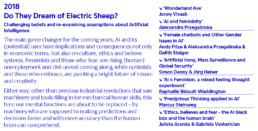
Following a series of recent researches about the future of AI and its specific ecology of affects, I would like to create and share a new thought experiment, to highlight critical issues, address ambiguities and play with paradoxes at the cross-road of AI and Feminism. The discursive perambulation will set and navigate a broad almost vertiginous, cognitive panorama, mirroring the one of AI.
RBW
Intervention slides
About Dispataziune Susch #2 "Do They Dream of Electric Sheep"?
Challenging beliefs and re-examining assumptions about Artificial Intelligence
The main game changer for the coming years, AI and its (potential) uses have implications and consequences not only in economic terms, but also on culture, ethics and believe systems. Pessimists and those who fear, see rising (human) unemployment and civil unrest coming along, while optimists and those who embrace, are painting a bright future of leisure and creativity.
Either way, other than previous industrial revolutions that saw machinery and tools filling in for mechanical human skills, this time our mental functions are about to be replaced – by machines who are supposed to making predictions and decisions faster and with more accuracy than the human brain can comprehend.
The scale of this challenge has not fully arrived with government agencies, business leaders and scientists, and it seems essential to think about frameworks and regulations that would accompany this change before it settles without other leading forces than the profit-making of the tech industries. Algorithmic deficiencies based on the biases of the programmers need to be identified and a code of conduct as well as greater diversity among the engineers and computer scientists developing AI could go a long way toward minimizing these biases.
To quote Marina Gorbis, executive director of the Institute for the Future: “We need technologists who understand history, who understand economics, who are in conversations with philosophers, we need to have this conversation because our technologists are no longer just developing apps, they’re developing political and economic systems.” These are very present issues that need to be urgently addressed, since the technologies become more prevalent.
Thus, we want to bring diverse speakers from science, art, academia, tech and economy together to analyse the factual status of AI, its impact and its possible futures, and to discuss agencies broaching the mysticism of both technological and artificial power structures, the changing narratives in the human machine discourse and the transfer of gender imbalances from the physical to digital worlds:
Can empathy be programmed and what is it to be human? Does it matter that AI is 95% coded by men? Do we replace the Deus ex Machina with machines with godlike attributes? What holds believes?
By taking facts to arguments and charging them with tension we will intensify the energy thinking holds and playfully expand realities.
Research axes reminder
Axis 1: Transitions & Future Worlds
Axis 2: Foresight Methodology Innovation
Axis 3: Art & Future Research
Related articles
Designing Post-Human Futures, Knowledge for the Anthropocene, 2021
This long essay lays the basis of TAC Future Lab methodological and transdisciplinary research, mixing learnings from…
‘Prototyping Futures’ Symposium, ‘Cybiosis’ Circle, NSU, Diffrakt, Berlin, 2020
This intervention was an opportunity to prefigure, share and discuss a first draft of the TAC Future Canvas, designed…
Our Knowledge Builds New Worlds, CNRS 80 yrs anniversary, Paris, 2018-19
This 'future lab' is created within the CNRS Communications Department to help its entire team (20 employees), to…
Future x IA x Speculative Design, Duperré Design School, Paris, 2018
In this workshop cycle on the future of/with AI, students discover the critical future challenges raised by AI, and…
Future of Artificial General Intelligence, Forccast, Telecom ParisTech, 2018
Development for a research team, as part of their participation in the FORCCAST program, of a set of speculative short…
Toward Alien Cosmologies, FUTUR(S) Trend Report, Peclers, 2017
It is in the international and influential FUTUR(S) book that Raphaële Bidault-Waddington initially coined the notion…
